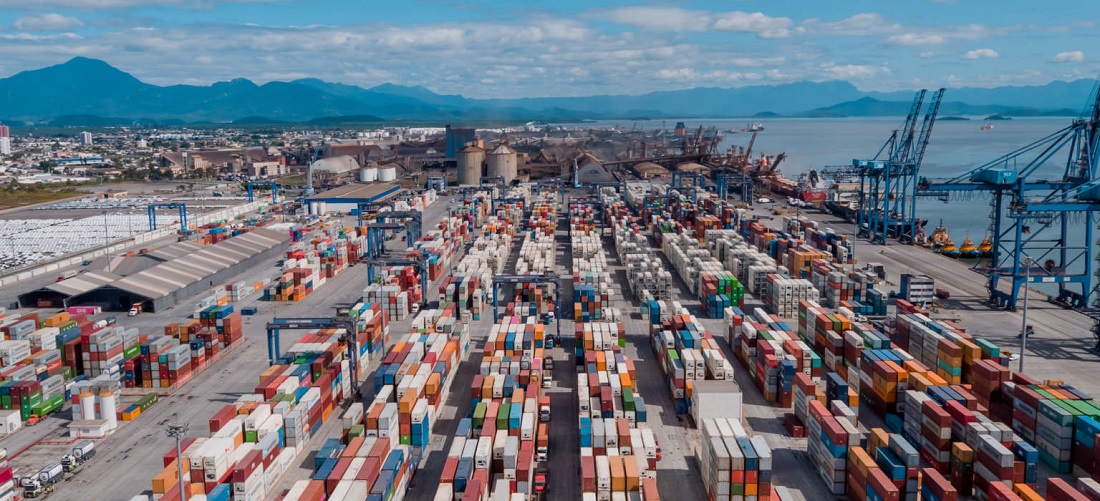
Paranaguá Container Terminal is suffering from increased vessel omissions
May, 09, 2022 Posted by Gabriel MalheirosWeek 202220
The Container Terminal of Paranaguá, the most important container terminal in Paraná, recorded 131 vessel omissions in 2021, nearly one every three days. The number is almost ten times higher than the average of omissions between 2017 and 2019 and four times higher than the previous year.
These data were revealed by the CEO of Portos do Paraná, Luiz Fernando Garcia, to iINFRA, indicating that most of the omissions on the record book were from companies that lead the long-haul container transportation market in Brazil, Maersk, and MSC, with more a share of more than 60% of this market.
He also said that part of the vessels that stopped calling at the Paraná-based port either were loaded or discharged cargo at the so-called vertical terminals, which these shipowners control in Santa Catarina and São Paulo. TCP belongs to the China Merchant Ports group, with no shipowners in control.
Problems for the local industry
What is deemed cause for concern is the terminal’s future productivity loss and, more importantly, the state’s industries having to use more expensive land logistics, possibly leading to the abandonment of new businesses or shutdowns of existing plants.
The iNFRA Agency spoke with a partner from a state industry that uses a large number of containers per year, who requested anonymity for fear of retaliation. He claims that receiving proposals for lower container freight costs when using vertical terminals is “routine.”
However, he explains that he would have to cover increased distances by truck to deliver the containers filled with his products to other ports than it would have been in Paranaguá, which is closer to his production plant.
The industrialist also noticed an increase in omissions, which he claims resulted in operational losses (need to pay higher costs for the containers on hold). However, the most significant harm is the inability to deliver the promised goods to their customers.
Shipowner points out that omissions also occur at the group’s terminals
“Since the beginning of the pandemic, the supply chain around the world has been suffering from operational restrictions,” Maersk explained. “This has had a strong impact on the itineraries of all vessels, which have been stuck for days in long lines in congested ports, arriving in Brazil with delayed programming.”
The company justifies that “vessel omissions were made to pick up on service itineraries and reduce the impact of delays on customers. As a result, even ports where the Maersk Group owns a stake ”, says the text.
Greater predictability
The director of ANTAQ, Flávia Takafashi, who coordinates the working group created in October last year to evaluate container handling issues in Brazilian ports, stated that the figures received by the agency indicate that the verticalized port terminals had fewer omissions compared to white flag terminals until last year.
According to Flávia, the goal is to force shipowners to provide more operational predictability. For example, according to her, ships are frequently delayed far from their destination, but they prefer to report the omission once close to the port.
Another measure taken by Antaq was to change the agency’s system so that, from January 2022 onwards, any omission must be reported in advance, increasing Antaq’s control over it.
Source: Agência Infra
To read the full original article, please go to:
-
Other Logistics
Dec, 23, 2022
0
Rumo to expand presence in Brazil’s centre-north axis
-
Other Cargo
Oct, 18, 2023
0
More than 35% of Brazilian furniture sold to USA
-
Ports and Terminals
Sep, 08, 2023
0
Definition of Santos’ STS10 terminal size and bidding model in concluding stages
-
Ports and Terminals
Nov, 01, 2023
0
Cargo Throughput at Port of Montevideo Surges 30% in January-September Compared to 2022

